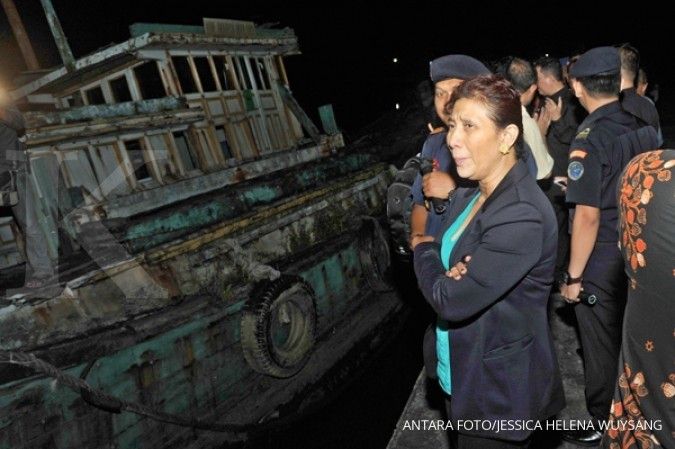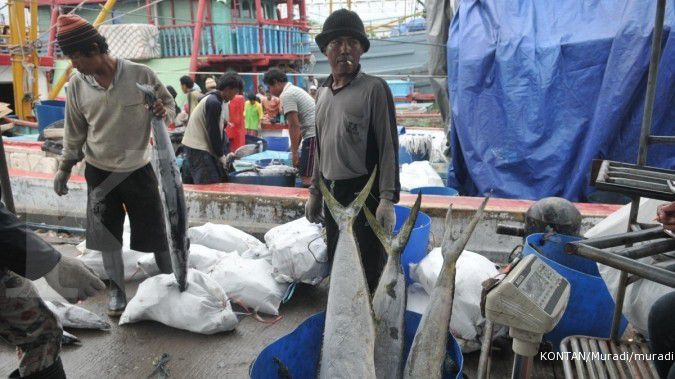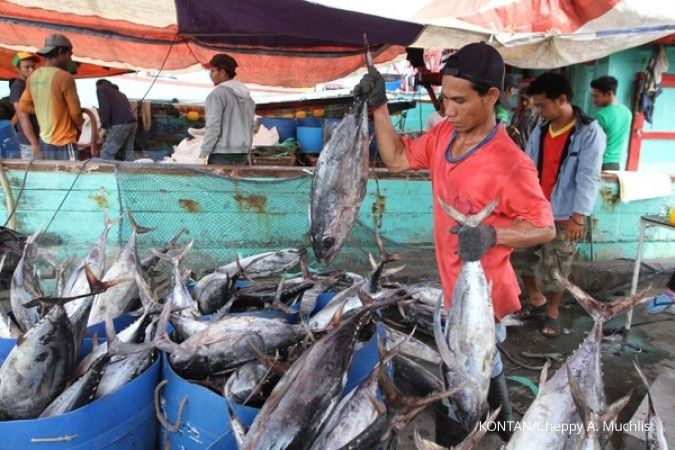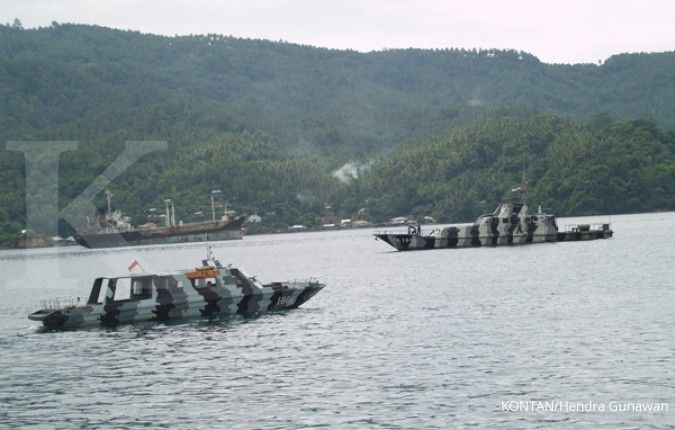RIAU. As the Indonesian Navy blew up three Vietnamese boats for illegally fishing in Indonesian waters on Friday, Maritime Affairs and Fisheries Minister Susi Pudjiastuti said such drastic measures would not lead to conflict with other countries in the region.
“This is not a war between countries. This is about people stealing our fish and these thieves are businesspeople,” Susi told reporters on the sidelines of an anticorruption day celebration at her office.
Susi said the decision to sink illegal ships operated by foreign fishermen was worthy punishment for their crimes and that the Indonesian government had a legal foundation to take such measures.
Article 69 of Law No. 45/2009 on fisheries stipulates that the coast guard can sink foreign vessels operating illegally in the country’s territorial waters based on sufficient preliminary evidence.
Earlier on Friday, in Tanjung Pedas waters near Siantan Island in Anambas Islands regency, Riau Islands province, the Navy destroyed the three Vietnamese fishing boats.
The boats, which were seized by the Navy on Nov. 2, were fired at from a distance by Navy ships until they were sunk. The Navy’s Frogmen Command (Kopaska) also attached explosives to the boats.
Dozens of high-ranking officers with the Navy, the Maritime Security Coordinating Board (Bakorkamla) and Anambas Islands regency administration witnessed the sinking of the boats, by the Navy’s fast patrol boats, KRI Todak and KRI Barakuda, and a Sigma-class Corvette, the KRI Sultan Hasanuddin.
“We blew up the boats after the Ranai District Court declared that the ships were seized and were subject to being destroyed,” said Rear Admiral Widodo, the commander of the Navy’s Western Fleet Command.
Widodo said the ships were caught by Navy warship KRI Imam Bonjol while sailing in Tanjung Pedas waters.
“The KRI Imam Bonjol was on a regular patrol when it came across the three boats at around 10 p.m. The crew members on the boats were unable to show the proper documents so our officers arrested them and took them to the naval base in Tarempa,” Widodo said.
Thirty-three people, all foreigners, were arrested and were now detained at the base, he said.
The 3 tons of fish on the ships had also been confiscated and had been put up for sale in an auction. “The money we raised from the auction was used to buy food for all the detainees,” Widodo said.
Tarempa Prosecutor’s Office, however, said it had been formally notified by Navy investigators that only three individuals could be prosecuted.
The three suspects were arrested and charged for failing to comply with proper fishing permissions, a prosecutor said. “They also used trawls, which is not allowed here,” he said.
The cases were still being investigated by Navy investigators at Tarempa base on the Anambas Islands. Widodo dismissed suggestions that blowing up the boat may result in diplomatic ramifications.
“We have informed the respective embassy in Jakarta that this is a practice adopted under Indonesian law. Destroying illegal ships is a common practice in enforcement measures against illegal fishing. Indonesian ships were also destroyed in Australia, Thailand and China,” he said.
Widodo said the 49-ship Western Fleet had seized 78 foreign illegal fishing ships, including the three destroyed on Friday.
Bakorkamla executive chairman Vice Admiral Desi Albert Mamahit said there could have been more ships operating illegally in the country’s territorial waters. “We admit that some of them managed to flee, we have shortcomings,” he said.
Widodo said the Navy was committed to supporting President Joko “Jokowi” Widodo’s Maritime Axis doctrine. However, he added that logistical problems were hampering the Navy’s efforts to work optimally. “In 2014 alone, for example, only 27 percent of the Navy’s optimal fuel requirement was fulfilled,” Widodo said.
The waters around the Natuna and Anambas Islands are rich in fish, as they are located where warm and cold streams meet, providing an ideal environment for both plankton and fish to thrive.
Local fishermen, however, have faced poor living conditions for years, with the majority of them catching fish using traditional methods and small boats.
“Our fishermen are struggling to compete with bigger boats operated by foreigners. Sometimes they are intentionally hit by these big boats to drive them out of the area,” Anambas Islands Deputy Regent Abdul Haris said. (Bagus BT Saragih)
/2014/12/05/464064271.jpg)













